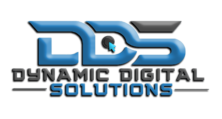
The internet is packed with website building platforms, each promising a user-friendly path to your online presence. But with so many options, choosing the right one can feel like navigating an online maze. This article will equip you with the knowledge to confidently select the ideal platform for your website building needs.
We’ll explore the two main approaches to website building – Website Builders and Content Management Systems (CMS) – to lay a solid foundation. Then, we’ll delve into the strengths and weaknesses of popular website building platforms like Wix, Squarespace, Shopify, Weebly, and of course, WordPress.org. By the end of this journey, you’ll be empowered to make an informed decision that aligns with your technical comfort level and website goals.
Website Builders vs. Content Management Systems (CMS):
Before diving into specific platforms, understanding the two main website building categories is crucial:
- Website Builders: Ideal for beginners seeking a user-friendly, drag-and-drop interface. Website builders offer pre-built templates and require minimal technical knowledge. Getting your website up and running quickly is a major advantage. However, extensive customization options might be limited.
- Content Management Systems (CMS): These platforms empower you to build complex and scalable websites. CMS platforms offer more flexibility and control over design and functionality, but typically require some technical knowledge.
Popular Website Building Platforms:
Here’s a closer look at some of the leading website building options:
- Wix: Renowned for its ease of use and stunning array of templates, Wix is a popular choice for beginners. Wix’s drag-and-drop interface makes creating a beautiful website a breeze. However, design flexibility can be limited compared to some CMS options, and if you envision significant future growth for your website, Wix’s scalability might be a consideration. If you’re a complete beginner or someone who prioritizes a user-friendly experience with beautiful design templates, Wix is a strong contender. It’s ideal for those needing a simple website, like a local business presence, portfolio, or blog.
- Squarespace: Squarespace has carved a niche for itself with its clean, modern aesthetics and user-friendly interface. Creatives like photographers, artists, and designers particularly favor Squarespace for its built-in features that showcase portfolios and online stores beautifully. Squarespace offers a good balance of customization and ease of use, but extensive customization might pose a challenge for some users.
- Shopify: The undisputed king of e-commerce platforms, Shopify offers a robust set of features specifically designed for online stores. Managing products, payments, and shipping is effortless with Shopify’s intuitive interface. However, if you’re not building an online store, Shopify’s functionalities might feel restrictive. Entrepreneurs and businesses looking to build an online store should look no further than Shopify. Renowned for its user-friendly interface and robust suite of e-commerce features, Shopify streamlines everything from product management and inventory control to secure payments and hassle-free shipping. If your primary goal is selling products online, Shopify offers a powerful and convenient platform to turn your vision into reality.
- Weebly: Another beginner-friendly website builder, Weebly offers a user-friendly interface and drag-and-drop functionality. Weebly strikes a good balance between affordability and features, making it suitable for simple websites or personal blogs. However, scaling a complex website on Weebly might be challenging.
- WordPress.org: Now, let’s explore WordPress.org, a Content Management System (CMS) that stands out for its power and versatility. Unlike the website builders mentioned above, WordPress.org offers unparalleled flexibility and control over your website’s design and functionality. With a vast library of themes and plugins, you can create virtually any type of website imaginable, from simple blogs to complex membership sites and full-fledged online stores. While WordPress has a learning curve compared to drag-and-drop builders, there’s a wealth of resources and tutorials available to empower beginners. The ability to customize and scale your website makes WordPress a future-proof solution.
Choosing the Right Website Platform
The ideal website building platform hinges on your specific needs and technical expertise:
- If you’re a beginner prioritizing a user-friendly experience and a quick website launch, drag-and-drop website builders like Wix, Squarespace, and Weebly are perfect options. These platforms offer intuitive interfaces with drag-and-drop functionality, allowing you to build your website visually, like arranging pieces on a puzzle board. With beautiful pre-designed templates and user-friendly features, you can get your website up and running quickly, without needing extensive coding knowledge. This is ideal for those who want to establish a simple online presence, showcase a portfolio, or create a personal blog.
- For those who dream of complex websites, online stores, or crave ultimate design control, Content Management Systems (CMS) like WordPress.org offer the flexibility and power to make it happen. Think of a CMS like a giant toolbox filled with customizable components you can assemble to create your website exactly how you envision it. While there’s a bit more of a learning curve compared to drag-and-drop builders, the vast array of themes, plugins, and customization options empowers you to build virtually any kind of website imaginable. Whether you’re building a membership site, a feature-rich blog, or a full-blown online store, a CMS like WordPress.org provides the foundation and tools to bring your vision to life.
Things to consider when choosing your website builder:
- Technical Comfort Level: How comfortable are you navigating technical aspects of website management? Or do you need an agency to construct the website for you?
- Website Goals: What type of website are you building? A simple blog? An online store? A complex membership site?
- Scalability: Do you envision your website growing significantly in the future?
- Budget: Website builders often have monthly subscription fees, while CMS platforms typically require hosting fees but offer more flexibility in pricing.
Conclusion
The perfect website building platform awaits! By understanding the core differences between website builders and CMS platforms, and by carefully considering the strengths and weaknesses of the various options we’ve explored, you’ll be well-equipped to make an informed decision. Remember, the best platform empowers you to build a website that reflects your unique vision and grows alongside your needs.
